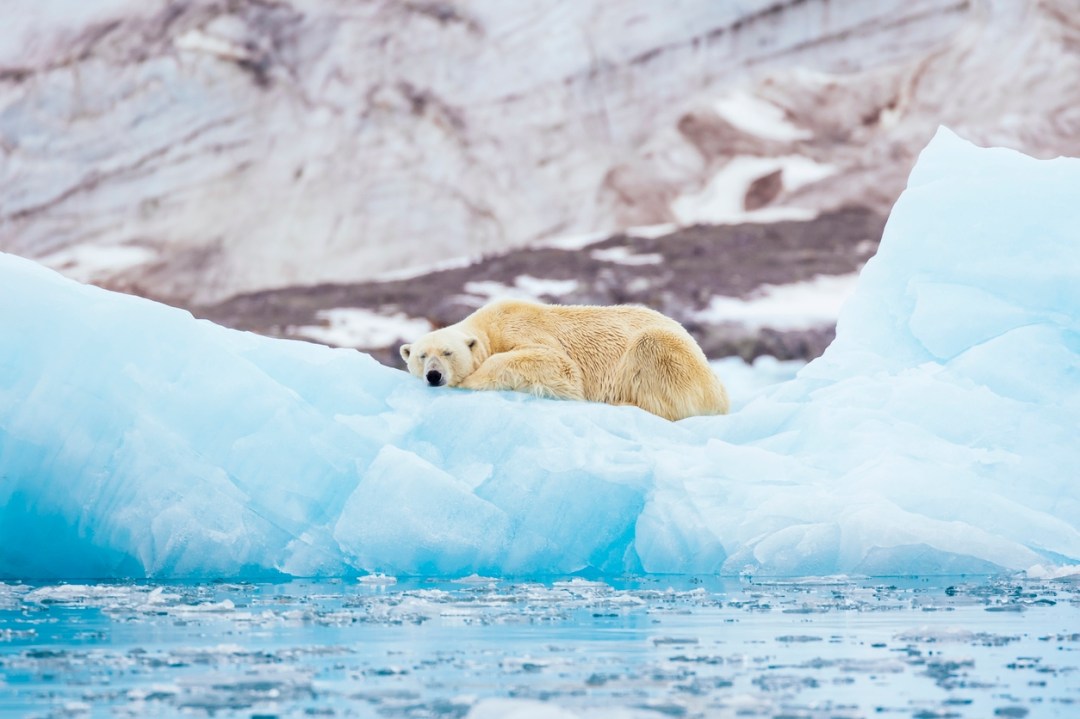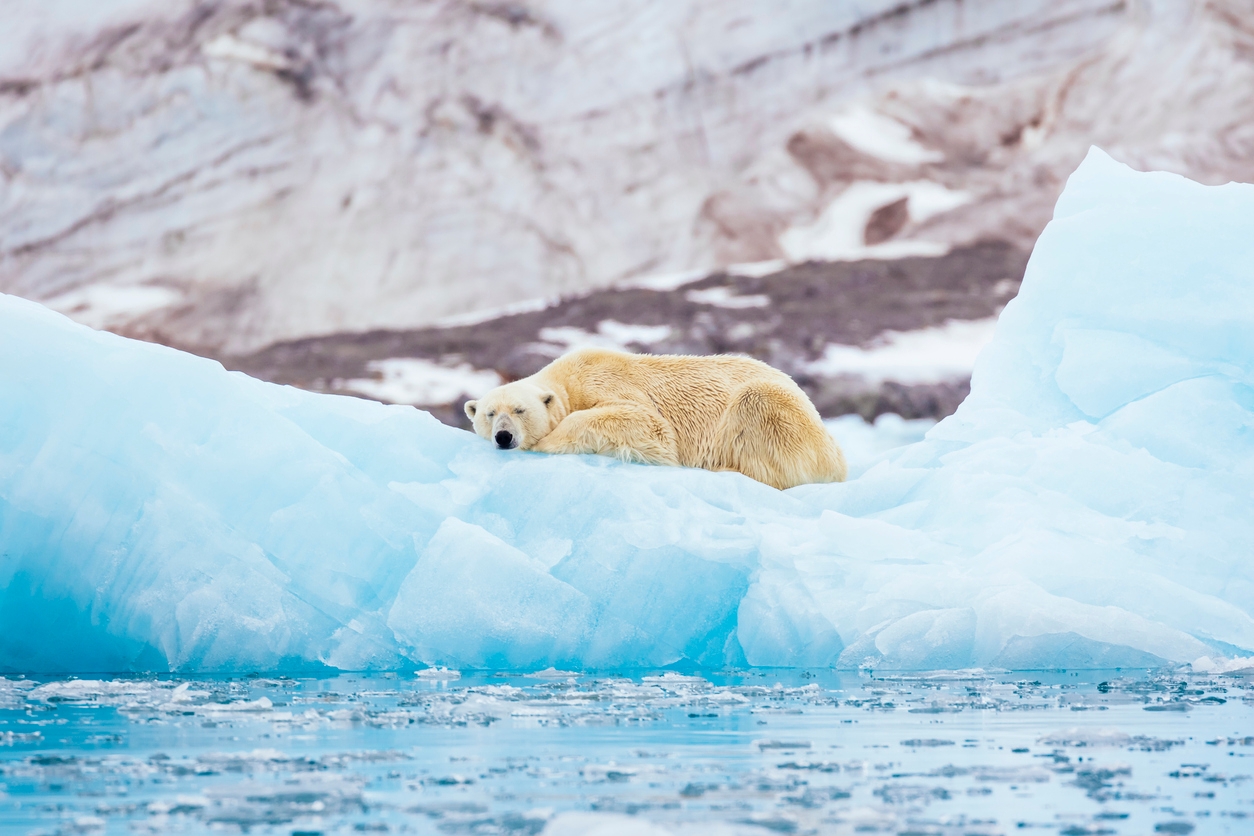Wouldn’t it be nice if we could debate climate change for five minutes without hearing about polar bears or being subjected to footage of them perched precariously on a melting ice floe? But that is a little too much to expect. Polar bears have become the pin-ups of climate change, the poor creatures who are supposed to jolt us out of thinking about abstract concepts and make us weep that our own selfishness is condemning these magnificent animals to a painful and hungry end.
Needless to say, the Guardian and BBC jumped on the opportunity for more polar bear coverage when a paper appeared in the journal Nature Climate Change, predicting that a high carbon emissions scenario ‘will jeopardise the persistence of all but a few high-Arctic subpopulations by 2100.’ The paper uses a new predictive model by Peter Molnar of the University of Toronto.
A BBC report, as usual, upgraded the claims made in the paper in order to state: ‘Polar bears will be wiped out by the end of the century unless more is done to tackle climate change, a study predicts.’ Except that the paper doesn’t quite say that. The high emissions scenario used in the study isn’t what would happen if the world continued on its current trajectory of fossil fuel use. Instead it uses a worst-case scenario called ‘RCP8.5’ dreamed up in 2014, which envisages that coal-burning will globally increase fivefold between now and 2100. This could be a challenge, because it would mean burning through more coal than, according to some estimates, exists on Earth. In fact, global coal-burning likely peaked in 2013. Even Nature Climate Changes’ mother journal Nature published a think piece in January calling for scientists and campaigners to stop using RCP8.5 as a ‘business as usual’ scenario, on the grounds that it is highly improbable.
But even if we were to jack up carbon emissions to the level envisaged by RCP8.5, and Arctic sea ice was to melt in accordance with the models, would it really mean the end of most polar bear populations? Given that polar bears feed on seals they catch by punching through sea ice, this may seem a reasonable claim. Yet the relationship between sea ice and polar bear population isn’t quite so simple.
A lot of the assumptions about polar bears and sea ice have been made on the back of the animals’ decline in the Western Hudson Bay area of Canada. Compared with the 1980s, sea ice there now breaks up on average two weeks earlier and refreezes a week later. As a result, polar bears are spending five months on land – where they struggle to find food – rather than four as before. Their estimated numbers fell by 22 per cent between 1987 and 2004, although this has levelled off since then. Polar bear numbers have also been falling in Canada’s Southern Beaufort Sea.
Yet it is a very different story in the Barents Sea, which lies to the north of Scandinavia and European Russia. There, the retreat of seasonal sea ice has been far more dramatic – it now hangs around, on average, 21 weeks less than it did 40 years ago. Yet polar bear numbers are stable. On Svalbard their numbers have increased by 40 percent – and the females seem to be in better physical condition now than they were 15 years ago. It is a different story, too, in the Chukchi Sea, which lies to the north of Alaska and Russia’s far east. There, sea ice forms for 41 days fewer than it did 40 years ago – yet the polar bear population seems to be stable, with no decline in the bears’ physical condition. The Kane Basin, off north western Greenland, has lost 53 days’ of sea ice in recent decades, yet the estimated number of polar bears more than doubled between 1997 and 2013.
All of which seems to indicate that polar bears, like many other creatures, have proved rather adaptable to changes in their environment. The assumption that they can only catch seals through sea ice, and will inevitably decline if their opportunities to do this disappear, seems simply to be wrong. Somehow or other, most populations of polar bears are finding enough to eat.
The end of polar bears has been predicted many times before. Indeed, one of the authors of the Nature Climate Change
paper, Steven Armstrup, claimed
in 2007 that the decline of sea ice would lead to a two thirds reduction in polar bear numbers by the middle of this century. The failure of overall polar bear populations to follow this downward trend, in spite of a decline is sea ice, was documented in a book The Polar Bear Catastrophe that Never Happened by zoologist Susan Crockford. What happened to her follows a familiar story for those who refuse to toe the line on climate change: shortly after publication last year she was relieved of the post of Adjunct Assistant Professor at Victoria University, which she had held for 15 years.
The Denial by Ross Clark will be published by Lume Books in September.








Comments